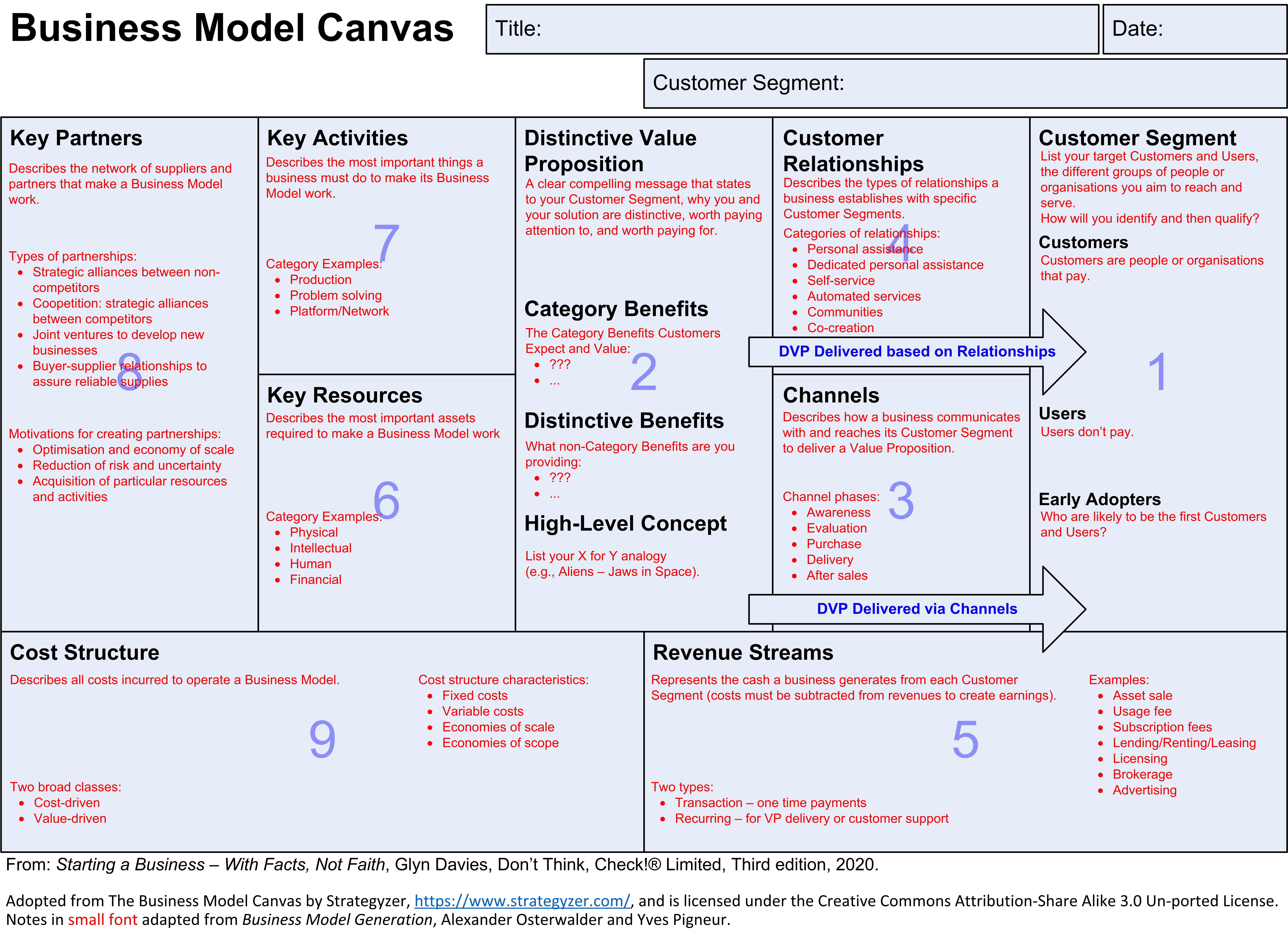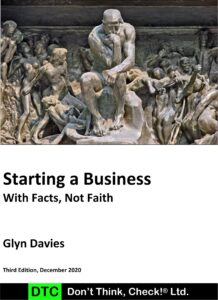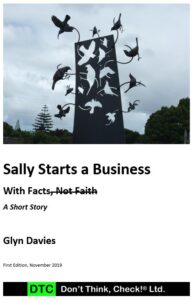
Introduction
The definition of Business Model depends on the frame of reference or context, but each definition consists of an exchange of value, such as exchanging a dollar for a loaf of bread.
It is naïve to go into business making stuff you enjoy making and expecting people to buy it simply because you think it is valuable. Even with the loaf of bread example, keeping the dollar may be more valuable/important to the person who is not hungry. Yet for a person who is starving, they might be prepared to pay ten dollars.
The canvas below is an excellent tool to assist with the development of a Business Model.

This topic would not be complete without reference to what a model is – “a complex set of interrelated hypotheses.” Natural Experiments of History, P21, Jared Diamond. For more on models, click here.
Business Model Definitions
A Business-centric view:
How a company creates value for itself while delivering products and services for customers.
Steve Blank
Describes the rationale of how an
Specifies how the firm creates value (and for whom), and how it captures value (and from whom).
Unlocking the Customer Value Chain, Thales, S. Teixeira.
A Customer-centric view:
Consists of the value a business creates for me, what it charges me in exchange for that value, and what value it erodes for me.
Unlocking the Customer Value Chain, Thales, S. Teixeira.
A System-centric view:
A sustainable system of value exchange between a business and its customers, where both have their needs met.
Creating Your Own Business Model:
To build your own Business Model, start with The 1-Page Business Model.



